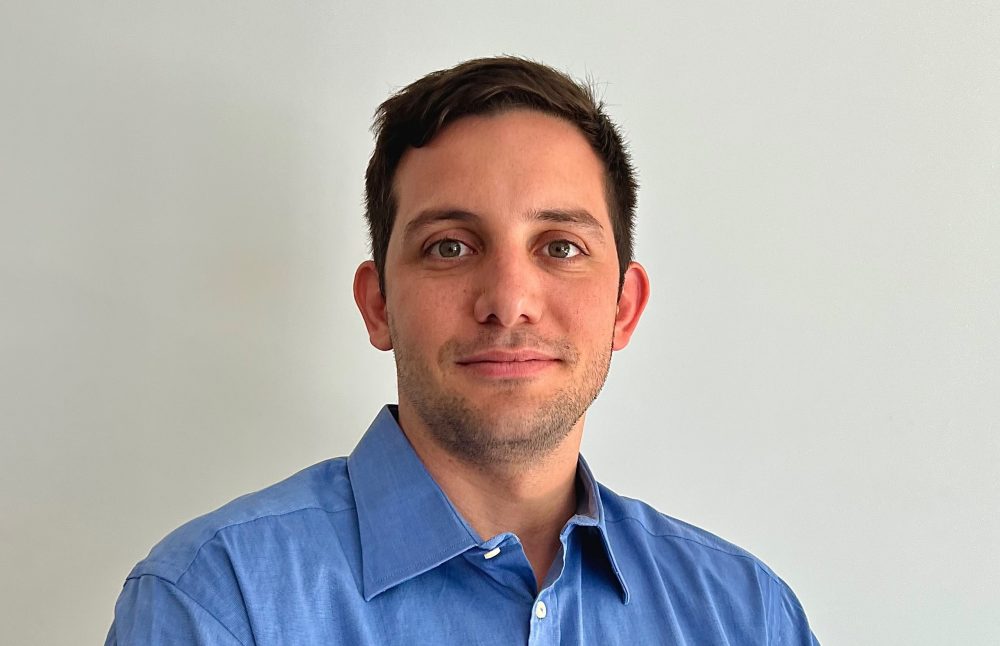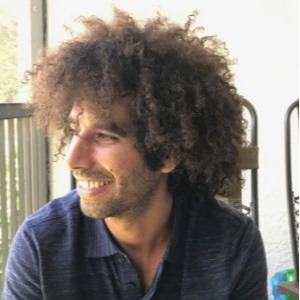I’m a computer engineer transformed into a ⚙️ passionate No Coder ⚙️. Reach out if you want to get introduced or learn more about the No Code world!
A day in the life of a marketing Co-Founder: Ophir Gadot
Here is a question.
How do you focus on actions that make an impact?
Rather than making a lot of actions
Ophir Gadot shared with us an insider view to his life as an entrepreneur and CMO at Furlough.
You’ll hear about:
- where to place your focus and why
- how the day and the week of a CMO looks like
- the no phone, no computer rule
- how a generalist prioritizes his work and responsibilities
- how culture enables teams to improve performance
Tools mentioned:
- Discord, for community management
- Klaviyo, for email marketing
- Pipedrive, for B2B sales and partnership management
- Triple Whale, for ads management and attribution
- Google Optimize, testing multiple pages
- Hotjar, for customer journey auditing
And all these in less than 13 min.
Transcript
Ophir Gadot: So, Spyros my name is Ophir Gadot, 40-year old, father of two, four times startup founder, two time founded a marketing agency, one in Israel and one in the US. And advising and working with startups of my own and third parties, as well as ecom businesses for the past 14 years. So my activities ranging between everything from entrepreneurship, marketing, business development, and strategic relationships.
Spyros Tsoukalas: Welcome Ophir to the Growth Mentor Podcast. I’m excited to learn from you about how a day of co-founder who deals with marketing is. So first things first, could you tell us something we didn’t know about the life of a CMO?
Ophir Gadot: I mean, everybody knows how busy it is. But I would say the biggest thing that people might not be aware of, is how you’re spread out from multiple bases, because you’re basically taking care of many marketing channels. So you have a lot of people you speak with a lot of assets and content, you need to review and approve and communicate a lot of communication touch points. So the majority of it comes to understanding where to put priority, seeing everything up, and knowing where to push.
Spyros Tsoukalas: So what are the challenges that you face? Like along all those channels plus the other hats that you’re wearing? Like how do you balance them?
Ophir Gadot: They the biggest challenge is always in my eyes to know when to make an action that makes an impact rather to make a lot of actions that are not impactful. So is where to put your where to put your focus. Let’s say this, I can in fact work for the next three months straight with the existing tasks they have. But the key thing is, again, focusing on the 10% impacts 90% of the growth. So in my eyes is always being mindful of what’s moving the needle. From a marketing standpoint, whether it’s placements, whether it’s messaging, whether it’s team management, whether it’s events, whether it’s SEO, whatever it is, it’s again, it really varies by the company and by the situation, and pushing forward and what makes a difference.
Spyros Tsoukalas: So, Ophir, I like how you apply the Pareto rule from like, in your own way, would you would you describe to us how your day look like or your week, whatever you feel more comfortable with.
Ophir Gadot: I’ll share the day and we’ll go to the week. So I wake up every morning, let’s say between six to seven, I have kids, so they wake me up alarm, getting them prepped food stuff, getting them to daycare, from there, I do like between 45 to one hour of workout, it could be running, it could be swimming, it could be gym, but just to get the body going because, you know, unfortunately, we’ve worked a lot on our acid ceiling. So I need to get the blood rushing in the beginning of the day, around 9:30. I’m starting to work. The beginning of my days, mostly to reply to people, go from my email, go from my messages, go from my notifications, and make sure that the important conversations are being addressed. I don’t want anyone waiting for me, when like a lot of times, you know if someone waits for one liner from you to keep on going. So the last thing I want is them waiting. So this is my first priority just replying then it’s really depending on my schedule. But majority of times I have meetings or sessions within the community running in furlough, and client communications. But I try to allocate within every day two to three hours of what I think is impactful outside of my schedule. So, I always leave myself to two free hours that are vacant. They’ll keep to myself to push something, whether it’s going to be outreach, or a call to a client or focus on a marketing channel that doesn’t work with our company or a company we’re related to or create a presentation. I mean, but trying to allocate two or three hours outside of the schedule, lifestyle or life that like if I’m gonna allow every hour of my calendar to be open to meetings, it’s going to be fully black, fully blue. And that means I’m going to only meet people I’m not going to push any deliverable. Now, after that, obviously I have more meetings, more sessions and so on and I finished my day around 5:00 to 5:30. Getting my kids, I have a very, I would say, no phone, no computer habits when I finish work, like I have no notifications on my phone. The computer is on the second story, you will not see me on the second story after five 5:30pm. And I’ll only attempt things that are overly important or urgent in these times are not a time anything else.
Spyros Tsoukalas: So, Ophir, how do you combine the different paths that you were given the fact that your founder and your usually don’t deal only with marketing, and at the same time you have a family at home? So how do you combine all those different hats?
Ophir Gadot: So I’ll be honest with you, I’m used to be a founder, like I have, in the last 14 years, I’ve been 13 years of founder and one year employed and also not been employed. So I’m used to having that flexible schedule plus having to wear so many hats. So in that sense, like, if I need to make coffee in a meeting, I’ll make coffee in a meeting, if I need to do a customer service call to be there and support the customer, I’ll do that. Like I’m very used to do everything a business needs. And like I’m a generalist and heart, you know, I mean, there’s nothing that I do exceptionally well outside of people, and being around people and communication with people. And so my talent is simply knowing where to put myself and Jack myself for the benefit of the business. If that means that in that day, I’m going to do dummy work, a lot of times I need to do the work from my from my company, which I would never do as an employee. So I’ll do that. And overall, I’m trying again, to put as much focus on things that help growth. Whereas Yes, I can do dummy work. Yes, I can do a lot of syncing or coordination, or meetings by I’ll have to leave myself like as a founder or co founder have to leave myself to free hours where I’m pushing the business and not just making my schedule, or making my daily routine. And I think this is a habit that everybody can benefit from.
Spyros Tsoukalas: But how when do you have the time? And how do you lead your team? Like, how is that part of the what you do?
Ophir Gadot: So I’m like we’re we’re running the team and for low and we’re all most of the time we’re on voice channels, most of the day, whether active or inactive. So we have constant meeting with team meetings constant, we have task management tools as well, which we utilise to 14 management. We work with Discord, I don’t know if you’re familiar, but we work in a format that is very similar to Slack when it comes to team communications and having everybody in the right place, as well as email. But I will say majority of it comes in dedicated meetings for specific subjects, as well as one on one meetings and team communication within dedicated channels.
Spyros Tsoukalas: And given all this remote, I guess interaction, how is culture defined internally and externally at the same time?
Ophir Gadot: Bro, that’s a big question. Like culture for me, is big. Because I think culture is epic, right? Like culture defines if an employee is good, or not good. Like it’s always on the part of whomever dictates the culture, how people perform under him, right? So in that sense, like I have two rules of thumbs one is 99.9% of people don’t perform their best when they’re stressed. So, me as a leader in a team, or as a manager, I need to carry that stress on my back. I don’t need like they don’t need to feel it. They need to be encouraged to reach goals. They need to have milestones they need to have scheduled, sure, but distress. Let’s say I have a client, he has certain milestones we need to meet, I’m going to carry with myself. I’m not going to take all of that. Second thing is, empowering. When you don’t empower your team members. They become pen movers. No, I mean, they become they become followers. And ideally, you want team members who are empowered, they’re capable of taking decisions and they’re capable of making mistakes without being afraid of making mistakes but being able to learn from them. So empowering in that sense means that I let the members make decisions. I’ll let them consult with me. I’ll let them make decisions sometimes I disagree with, knowing that they need to make decisions they will be they will be wrong it and also knowing that I don’t own everything that’s right you know I could be wrong and make it be right and that’s it. So, again, it comes back to allowing them to take their own path while trying to reach our goals.
Spyros Tsoukalas: I couldn’t agree more with your leadership style of your I totally, I love it and I am trying to apply it when I have to leave the team. So, last question for the day and for you. Are there any any tools or resources that you would recommend to our listeners?
Ophir Gadot: Wow, there’s a lot is there any specific direction you’re gonna take it?
Spyros Tsoukalas: Your favourite ones.
Ophir Gadot: My favourite ones. So, I mean this called obviously for community management is phenomenal. Klaviyo for email marketing, I’m a big fan, I can go I can go and see here. I love Pipedrive for B2B sales and partnership management, I love I’m a big fan of what they do. And Triple Whale on ads management attribution review and just cross management of multiple ad accounts under one brand, understanding how the customer journey goes. Google Optimise don’t sleep on this product even though it’s free, Google Optimise the ability to test multiple pages stacking one against the other phenomenal. LinkedIn it’s a social platform but it’s a great tool as well like the ability to create business relationships through LinkedIn. Create opportunities in LinkedIn is phenomenal. Old Hotjar for websites auditing and customer journey within the website super important what else.
Spyros Tsoukalas: I think we have enough to explore and test. Thanks Ophir for taking the time and the effort and sharing with us all these quite personal details about how you structure your work and how you lead your game and your life. Thank you very much for being with us today.
Ophir Gadot: Appreciate it take it easy brother in a pleasure to be here. Looking forward to stay connected with Growth Mentor and help as many founders and marketers as possible.
Spyros Tsoukalas: Thank you Ophir, thank you.
In this episode


My name is Ophir, I’m a big time foodie, 4x times startup founder, founder and owner of marketing agencies in Israel and US, as well as a web development company in eastern Europe. Currently co-founder and director of marketing and strategic partnerships in Furlough.com
Join the community
Enjoy the peace of mind that advice is always only one Zoom call away.

